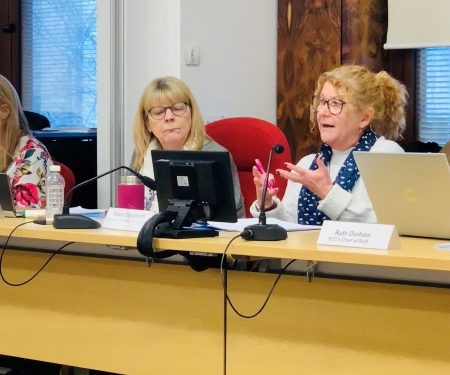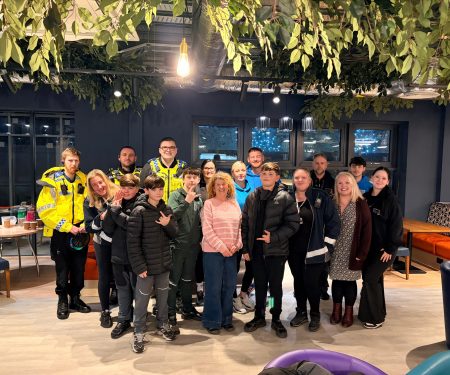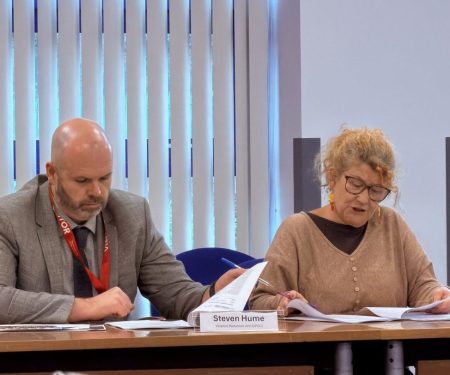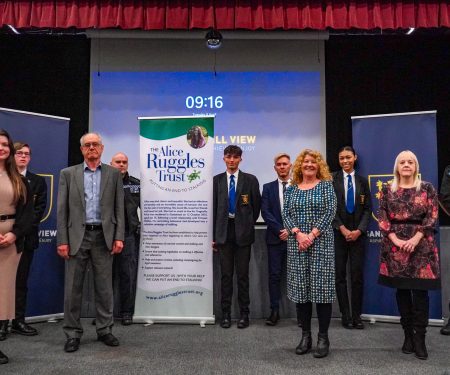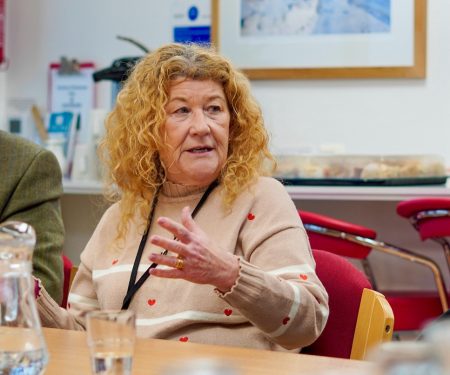| With rising living costs, a lack of stable jobs and the North East labelled the child poverty capital of the UK, the PCC wants to tackle poverty to prevent future generations from falling into crime or being targeted by criminals. |
Figures show three and a half times as many criminals live in the 20% most deprived areas of the UK, compared to the 20% least deprived areas. This results in the less well-off fearing crime and suffering crime the most. Shocking figures also show those on the lowest incomes experience 62% more personal crime.
To kick-start the unveiling of the new approach to tackling crime, PCC Kim McGuinness is awarding £130,000 of cash to a range of community causes through the first round of her Operation Payback 2022 scheme.
The scheme uses cash seized from criminals to fund meaningful grass roots initiatives, improve local lives and repair the harm caused to communities by crime. Beneficiaries announced today include:
- New Beginnings – Sunderland
- Sports for Youth – Newcastle
- Primrose Park Alliance – South Tyneside
- Stomping Ground Forest School – Gateshead
- Mindstars NE – North Tyneside
- Prudhoe Youth Project – Northumberland
Full list available here
Speaking at an event to launch her fighting poverty, fighting crime plans Kim outlined how:
- Her Violence Reduction Unit will be working with local businesses to grow job, training and work experience opportunities for the region.
- She is working closely with public transport providers to ensure travel is affordable, reliable and also safe.
- Will continue to fund positive youth opportunities and her VRU will build on its work with Northumbria Police around early interventions.
Opening the launch, Kim said: “We need to look at crime through a different lens. We need to see the wider picture. Reducing the number of families in poverty will help reduce crime in the North East – it’s what we all want.
“As any police officer here will tell you, we cannot simply arrest our way out of trouble – we have to take things right back to the very beginning.
“People need to be able to afford the bus that gets them to a job that pays them to feed their family and give kids opportunities.
“While criminals are likely to come from poorer backgrounds, this is not to say people who are poor are likely to be criminals. It does, however, make you more likely to be a victim of crime.
“There is clear evidence – the poor are by far most likely to be affected by crime. Those on lower incomes are six times more likely to be a victim of domestic abuse, three times more likely to be robbed, twice as likely to suffer violence. It’s awful. Nobody deserves to be the victim of crime.
“Crime is the biggest social justice issue facing our region”, she continued. “If we reduce poverty we reduce crime and this benefits everyone, regardless of your income or your postcode. Not to mention the ever-growing demands and pressures on our hard-working police force.
“Energy, food, fuel, it’s all going up and we’ve been looking to Government for help for years now but it seems the true scale of poverty in our region is brushed under the carpet; much like the need for real investment in our police service. Nothing is getting fixed. As a region we have to come together and take things into our own hands – hands that actually care about poverty, about crime and about our region.”
Bridget Phillipson, Shadow Secretary for Education, welcomed the new focus on early intervention and its role. “I believe education is how we secure the best life for every one of us, supporting children across our country to achieve and thrive. Life should not come down to luck. But too many of our children grow up in poverty, too many kids don’t get the support they need at school, and too often that means storing up problems for adult life.”
Lambton Street Youth and Community hub in Sunderland ‘one of the oldest youth and community centres in Europe’ are set to receive funding from the Commissioner’s Operation Payback fund. The Centre’s manager, Kevin Howard, said: “Tackling poverty and investing in our young people is paramount. Many youth centres are struggling or have closed over the years due to the lack of funding and government cuts. This has resulted in increased youth crime and anti-social behaviour. Youth Centres are safe environments for young people. They learn standards, life values – skills that will enhance personal and social development, guidance and support to achieve their aspirations. Young people will never go out of fashion they will always be there, always be our future. How that turns out will depend how seriously we take them and the opportunities we as society present to them.”
In the coming weeks the Commissioner will be setting out a new Police and Crime Plan which details policing priorities for the region as well as plans to tackle poverty to help support the work of Northumbria Police.



